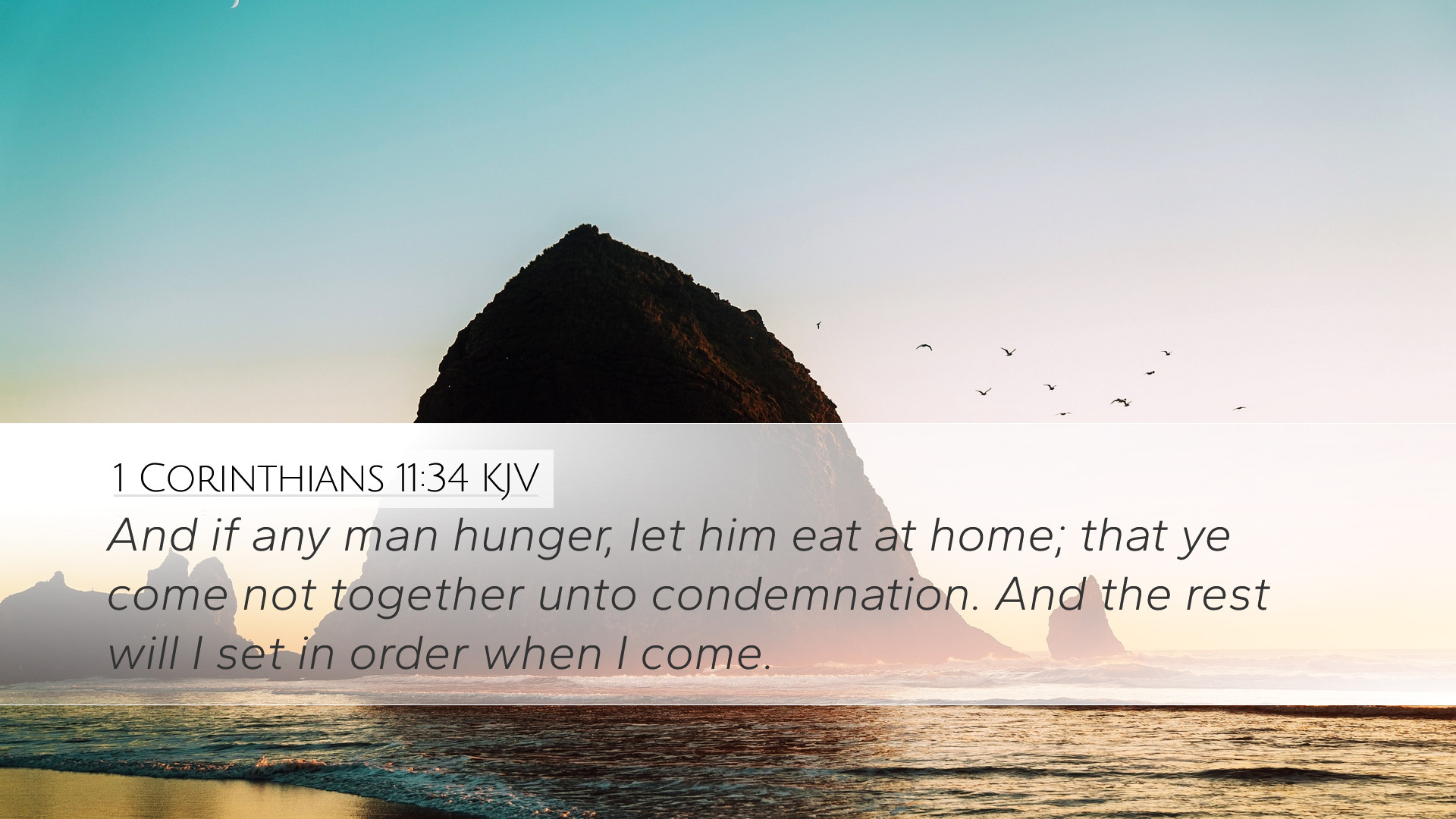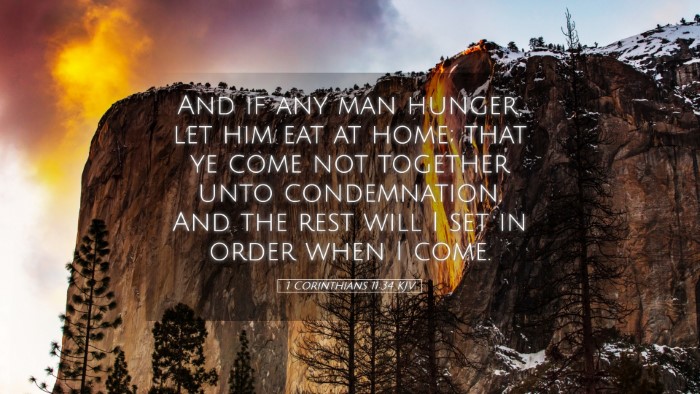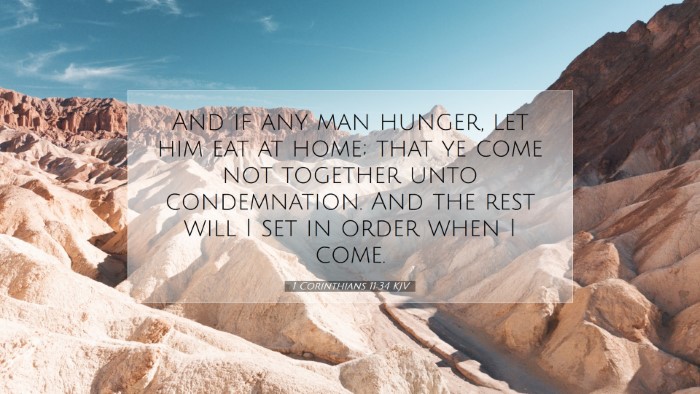1 Corinthians 11:34 Commentary
Verse: "And if any man hunger, let him eat at home; that ye come not together unto condemnation. And the rest will I set in order when I come."
Introduction
The Apostle Paul delivers significant theological and practical instruction in this verse, addressing the issues of order and propriety within the worship gatherings of the Corinthian church. Following a discussion aimed at correcting the misapplication of the Lord’s Supper, this particular verse serves as both a corrective and a directive for communal conduct.
Insights from Public Domain Commentaries
Matthew Henry's Commentary
Matthew Henry emphasizes that Paul's exhortation serves to maintain the sanctity of the communion. He points out that while gathering for worship is essential, the behavior of the congregants can impact the spiritual state of the assembly. Here, Henry notes:
- Spiritual Discipline: Henry highlights the necessity of self-discipline, arguing that those who are hungry should properly partake in their homes instead of treating communion as a mere meal.
- Consequences of Irreverence: The admonition against coming together “unto condemnation” suggests that irreverent participation holds spiritual consequences, reminding believers of the seriousness of partaking in the Lord’s Supper.
Albert Barnes' Commentary
Albert Barnes further elaborates on the implications of Paul's directive. He stresses that the problem in Corinth was not only about physical hunger but also about the broader understanding of unity and respect within the Body of Christ. Key points from Barnes include:
- Unity in Worship: Barnes underscores that the communal meal should symbolize unity. The divisions among the Corinthians indicated a lack of spiritual discernment.
- Self-Examination: He implies that congregants should examine their own hearts and motives before partaking, ensuring their participation is worthy and respectful of the communion's purpose.
Adam Clarke's Commentary
Adam Clarke provides an extensive examination of the cultural and social dimensions at play in the Corinthian community. He posits that:
- Cultural Context: Clarke notes the social customs of the time and suggests that it was customary for people to gather for meals before larger festivals or religious observances. However, this scenario led to inequities and a lack of concern for the poorer members of the congregation.
- Relational Dynamics: He stresses that Paul's instruction is framed within relational dynamics, calling for love and equity among believers. Clarke interprets Paul’s admonishment as an encouragement to ensure that personal hunger does not infringe upon communal worship.
Theological Implications
This verse encapsulates a critical theological theme of the Pauline epistles: the relationship between individual conduct and communal worship. The overall message enforces the idea that personal piety is interconnected with the health of the church body as a whole. Important theological implications drawn from this verse include:
- The Eucharist as a Covenant Community: The Lord’s Supper is not merely a personal ritual but rather a communal celebration of the covenant that binds believers together in Christ.
- Judgment and Accountability: The warning about “condemnation” alludes to the serious nature of judgment—a theme prevalent throughout Paul's writings. Here, he reassures that accountability does not solely rest with the ecclesiastical leadership but with the entire assembly.
Practical Applications
For pastors, teachers, and scholars today, 1 Corinthians 11:34 involves significant practical implications for church life:
- Preparation for Communion: Church leadership should emphasize the importance of spiritual preparation among congregants prior to communion, ensuring that individuals arrive with a heart ready to honor the significance of the meal.
- Equitable Practices within the Church: It is vital to structure church practices and meal observances so that all members, especially the marginalized, feel included and valued in communal gatherings.
- Teaching and Church Culture: Teachings surrounding the Lord’s Supper should foster a culture of respect, love, and honor, reflecting the unity that Christ intended for His church.
Conclusion
1 Corinthians 11:34 serves as a poignant reminder of the delicate balance between individual needs and communal responsibilities in church life. As Paul addresses the Corinthian church, his words echo through time, urging believers today to approach worship with reverence and consideration for one another, enhancing the corporate testimony of the Body of Christ.


